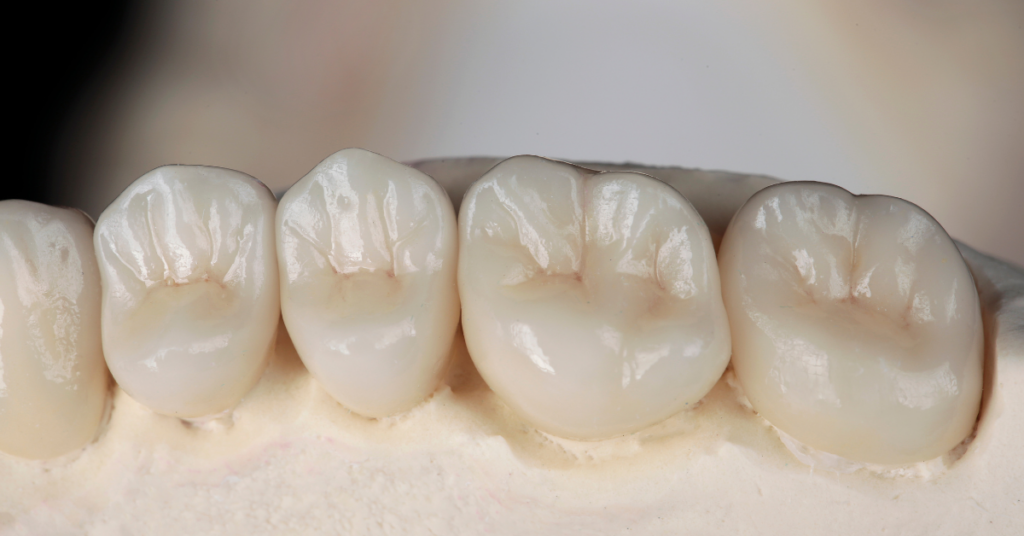What is a Dental Crown?
A dental crown is a tooth-shaped cap that is placed over a damaged, decayed, or weakened tooth to restore its shape, size, strength, and appearance. It is a versatile dental restoration that can help protect and preserve your natural teeth, ensuring long-term oral health and functionality.
Why Might You Need a Dental Crown?
There are several reasons why your dentist might recommend a dental crown, including:
- Restoring a Broken or Worn-Down Tooth: Teeth that have been fractured or severely worn down due to grinding may need crowns to regain their structure.
- Protecting a Weak Tooth: If a tooth is weakened by decay or a large filling, a crown can prevent it from breaking.
- Covering a Dental Implant: Crowns are often used as the visible portion of a dental implant to replace missing teeth.
- Supporting a Dental Bridge: Crowns are used to anchor a dental bridge in place.
- Enhancing Cosmetic Appearance: Crowns can cover discolored or misshapen teeth, improving the aesthetics of your smile.

Strength of a Crown vs. a Filling
While dental fillings are effective for repairing small cavities or minor damage, they may not provide the same level of strength and durability as a crown. Fillings rely on the remaining natural tooth structure for support, which can be a limitation if the tooth is significantly weakened or has a large cavity. Crowns, on the other hand, fully encase the tooth, offering superior protection and reinforcement against cracks or fractures. This makes crowns a better long-term solution for teeth that experience heavy chewing forces or are prone to further damage.
Types of Dental Crowns
Dental crowns come in a variety of materials, each with its unique advantages:
- Porcelain or Ceramic Crowns: These crowns are popular for their natural look and are often used for front teeth.
- Metal Crowns: Made from gold, palladium, or other metal alloys, these crowns are very durable and ideal for back teeth.
- Porcelain-Fused-to-Metal (PFM) Crowns: Combining strength and aesthetics, these crowns have a metal core with a porcelain exterior.
- Resin Crowns: More affordable but less durable, resin crowns are often used as temporary solutions.
What is the Process for Getting a Dental Crown?
- Consultation and Examination: Your dentist will examine your tooth, take X-rays, and discuss treatment options.
- Tooth Preparation: The tooth is shaped to make room for the crown. Impressions are taken to ensure a custom fit.
- Temporary Crown: A temporary crown may be placed while the permanent crown is crafted in a dental lab.
- Final Placement: Once the permanent crown is ready, it is cemented into place, restoring your tooth’s functionality and appearance.
How to Care for Your Dental Crown
Caring for your dental crown is similar to caring for natural teeth:
- Brush twice a day and floss regularly.
- Avoid chewing hard foods, ice, or other objects that could damage the crown.
- Visit your dentist for regular checkups and cleanings.
Schedule Your Appointment Today
If you think you might need a dental crown or have questions about your oral health, contact Delatite Dental today. Our experienced team is here to help you achieve a healthy and beautiful smile.
Dr Kevin Ho, Dr Angela Nguyen & The Delatite Dental Team
Our commitment to your dental health and overall wellbeing is the heart of our practice




